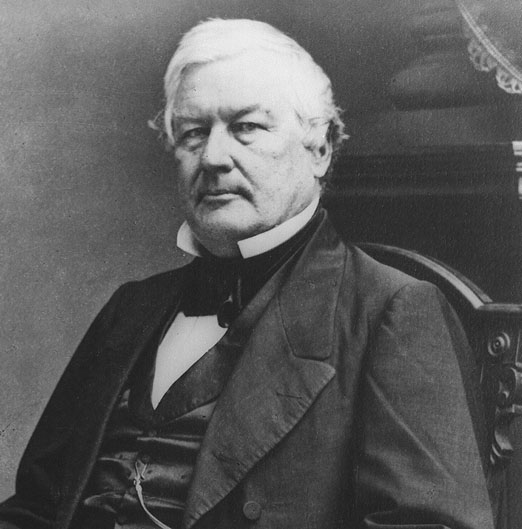House Speaker John Boehner (R-Ohio) is once again facing a conservative rebellion in his budget fight with President Obama and the Democrat-controlled Senate. With the ouster of four strong conservatives from House Committees there has been a chorus of calls from the grassroots to remove Speaker Boehner from his position of leadership.

Even a large number of Washington D.C. Republican groups and politicians are questioning Boehner’s leadership, including retiring Sen. Jim DeMint (R-S.C.).
Liberals also came out to celebrate the “purge.” Dana Milbank of the Washington Post wrote, in an article called “Republicans Raise the White Flag,” that “Right now, [Boehner] is hoping to lead his fractious GOP to an orderly surrender.”
Some conservatives still back Boehner, citing the tough position he has been put in politically and claiming that the “purge” of staunch fiscal conservatives from key House committees was done simply because they challenged his leadership, not because they were conservative.
However, whatever Boehner’s intentions there is an undeniable lack of trust from Tea Party Republicans. Conservative activists wonder whether Boehner is simply too willing to jump at the first offer the White House offers him. It is becoming more and more likely that whatever deal is struck will come with tax increases, which will require many Republicans to violate Grover Norquist’s no-new-taxes pledge.
The problem that Boehner and House Republican leadership have is the same one that dogged former presidential candidate Mitt Romney, especially when he was in the primary. Conservatives just don’t trust “the establishment” to fight for conservative causes in the same way that they will fight for power or cling to their political offices. This distrust and division gives Democrats the chance to knock over a weakened and divided Republican Party.
If there is a historical comparison to be made for John Boehner and the current Republican House leadership in this “fiscal cliff” negotiation, it would be to President Millard Fillmore and the Whig Party during the Compromise of 1850. Although the compromise brought California and Texas into the Union (with a number of other stipulations), it also led to a serious fracture in the Whig Party which caused it to disintegrate in the following few years.

President Millard Fillmore
Fillmore, taking over the presidential reins for the deceased President Zachary Taylor, inherited the complicated mess of bringing the newly acquired territory from the Mexican War into the Union while grappling with the growing and toxic issue of slavery.
Taylor, despite running on virtually no platform at all, had been taking a bold stance in negotiations. Taylor was seriously considering a veto of the proposed Congressional compromise and was poised to send troops to the New Mexico territory to defend it from the Republic of Texas.
Understanding how dire the national situation was becoming, Fillmore was willing to compromise and take nearly any deal that would reach his desk. He forced out Taylor’s cabinet members and stacked it with strong pro-compromise men. Fillmore was determined to make the Whig Party the “compromise” party and procure what he called the “final settlement” over the slavery issue. He was willing to strong-arm Whigs who tried to push the bill in a direction that would limit the spread and influence of slavery.
The eventual compromise was primarily the product of Senator Stephen A. Douglas, an Illinois Democrat. The bill contained a measure to end slave trade in Washington D.C., but also a harsh Fugitive Slave Law. Fillmore gave it his unabashed stamp of approval and signed it into law.
Also, and perhaps more importantly, the Missouri Compromise that barred any state above parallel 36°30′ from having slavery was changed to the policy of “popular sovereignty.” This policy, which allowed states to choose whether to be free or slave when entering the Union, led to a rush into the Western territories as well as open, armed conflict.
Fillmore immediately stamped out attempts by Northern Whigs to add a proviso barring slavery from any of the territorial governments. This forced many of those Whigs to violate the pledges they had made to their constituents. Pennsylvania Whig William Neal wrote that, “If the territorial bills pass without a proviso, the Whig Party is ruined—free soil will be the cry from one end to another.”
Indeed, the Whig Party did disintegrate after the Compromise of 1850, as the Free Soil, Know Nothing and Republican parties all rose and ate away at the tattered remains of a party that increasingly stood for nothing.
Although many Whigs that were generally anti-slavery, such as Abraham Lincoln, worked to uphold the law and the Fugitive Slave provisions, many believed the Whig leadership had sold them out in aligning with pro-compromise Democrats.
Historian Michael Holt in his definitive work on the Whig Party, The Rise and Fall of the American Whig Party: Jacksonian Politics and the Onset of the Civil War, described the cause of its demise, “In the 1830’s, in fact, the Whig Party had established itself only where it took concrete and distinctive stands on state as well as national issues. The failure to do so in the 1850’s was suicidal.”
Republicans are currently facing many of the challenges put before the Whigs. The country is facing an enormous crisis and an uphill battle to fix the government’s crumbling finances. Conservatives in the House must act as a united bulwark of liberty or they will be crush by emboldened Democrats and President Obama.
It may be time to start looking at new, bolder leadership options if Republicans wish to survive the onslaught of Democratic policies over the next few years and build a stronger coalition for the future.








Join the conversation as a VIP Member